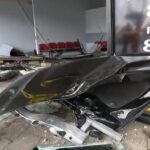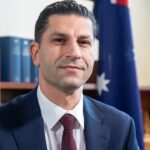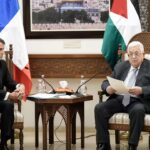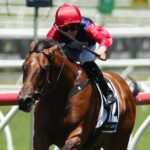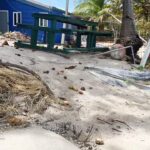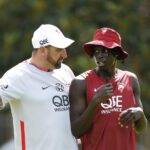Albanese Breaks Silence on Gaza Blockade
Anthony Albanese has finally voiced outrage over Israel’s aid blockade on Gaza, marking a significant shift in Australia’s political tone. His remarks coincide with a growing sentiment in the NSW Parliament’s antisemitism inquiry that the Zionist narrative is losing its grip. As tensions rise, it’s clear that the tightly controlled discourse around antisemitism in Australia is unraveling.
Zionist Groups Face Internal Jewish Criticism
Right-wing Zionist groups, historically claiming to speak for the entire Australian Jewish community, are facing increasing scrutiny. At the latest hearing, David Ossip from the NSW Board of Deputies asserted he represented “the Jewish community more broadly.” But this claim quickly unraveled as other Jewish voices challenged his authority.
When questioned, Ossip reportedly accused the inquiry of being “hijacked by fringe Jewish groups,” a claim echoed by the far-right Australian Jewish Association (AJA). The AJA described dissenting Jewish perspectives as “a tiny fringe group claiming Jewish heritage” and accused them of spreading “anti-Jewish rhetoric,” despite these groups having deep-rooted Jewish affiliations.
Legitimacy of Jewish Identity Questioned
Sky News commentators joined the fray, with one non-Jewish panelist dismissing anti-Zionist Jewish speakers by saying they “don’t actually represent Jewish people.” This framing aims to discredit dissent from within the Jewish community, reinforcing a narrow Zionist lens.
Taveet Sinanian of the Tzedek Collective highlighted a chilling new trend: Zionist attempts to question whether anti-Zionist Jews are even Jewish. When AJA president Robert Gregory was asked about this, he replied that “well-documented examples” exist where individuals who claimed Jewish identity were found not to be Jewish—though he stopped short of naming anyone in the inquiry.
Chilling Echoes of Historical Precedents
Gregory’s remarks drew comparisons to dark historical precedents. Sinanian, whose relatives were murdered by Nazis, said that equating Jewish identity with political beliefs is “chillingly reminiscent of German race science from the 1930s.” He called this “the height of antisemitism.”
Despite these attempts at delegitimisation, many Jewish speakers at the inquiry remained firm in asserting their identity and right to dissent. Cathy Peters of Jewish Voices of Inner Sydney condemned Zionist groups for trying to erase her community: “They’re trying to delegitimise my existence, my family’s existence and the existence of all the anti-Zionist Jews that I know.”
Rejecting the “Fringe” Narrative
Stephanie Cunio, founder of Jewish Women 4 Peace, also rejected the “fringe” label. She explained that her group includes a wide range of Jewish individuals, from rabbis’ wives to left-leaning activists, all united in their rejection of violence. “Our Jewish values are not fringe,” she stated emphatically at the hearing.
These values—justice, resistance to oppression, and moral dissent—were echoed by Shulamit Kirovsky of Tzedek Collective, who denounced efforts to silence those “speaking out against Israel’s illegal occupation and genocide.” Dr Na’ama Carlin from the Jewish Council of Australia added, “Delegitimising our views… is not the way forward.”
Political Firestorm Over Condemnation
The hearing took a dramatic turn when Liberal MP Chris Rath grilled Israeli-Australian Allon Uhlmann, a member of Jews Against the Occupation ’48 (JAO48), over his refusal to condemn Hamas and Hezbollah. Uhlmann explained that these groups are not antisemitic but opposed to Zionist policies.
Rath aggressively demanded Uhlmann condemn the October 7 massacre. When Uhlmann declined, Rath erupted: “You have absolutely no legitimacy and credibility if you’re not going to condemn the atrocities that took place on 7 October.”
Judith Treanor of JAO48 interrupted to ask if Rath would condemn Israel’s daily violence. Rath deflected, asserting his role was to ask questions, not answer them.
Narrative Control Versus Moral Integrity
The politics of condemnation, according to Dr Michael Edwards of the Jewish Council of Australia, is ineffective. “It ultimately gets us nowhere,” he argued. This kind of narrative control, said Nikolai Haddad of the Arab Council of Australia, is more about power than justice.
After the hearing, Uhlmann responded, “Being attacked by Rath is like being mauled by a toothless sheep.” Treanor quipped on social media, “Looks like we have upset some sensitive Zionists… Just wondering who told Lib MP Chris Rath to turn into Piers Morgan.”
A Turning Point in Public Discourse
As Australian political leaders and Jewish voices call for justice and nuanced debate, the grip of the Zionist narrative in mainstream institutions may be weakening. Albanese’s shift, combined with diverse Jewish advocacy, signals a transformative moment in Australia’s engagement with the Israel-Palestine crisis.

